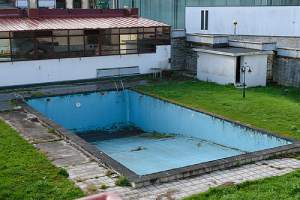 Removing a swimming pool is a smart move for many homeowners. Whether you have decided it is not worth updating your aging swimming pool or you are not getting enough use out of your pool to justify its ongoing expenses, a pool removal enables you to eliminate the risks and costs associated with pool ownership while freeing up space in your yard to use for other purposes.
Removing a swimming pool is a smart move for many homeowners. Whether you have decided it is not worth updating your aging swimming pool or you are not getting enough use out of your pool to justify its ongoing expenses, a pool removal enables you to eliminate the risks and costs associated with pool ownership while freeing up space in your yard to use for other purposes.
Outlined below are some of the most frequently asked questions about pool removal in 2021.
What Methods Of Pool Removal Are Available?
Homeowners have two main options when it comes to removing a swimming pool from their home: partial removal or full removal. Here is a look at how these approaches work.
Partial Pool Removal
In a partial removal, the swimming pool is drained, and I drill holes into the bottom of the pool liner to allow for proper drainage. Then, roughly 18 inches of pool material are broken down from the top of the pool. The resulting rubble is normally placed inside of the pool cavity. A type of soil stabilization fabric is used on top of the rubble to keep soil from moving too much. Then, fill soil is placed inside the pool cavity and the ground is compacted to help keep settling to a minimum.
Full Pool Removal
In a full removal, all of the concrete, gunite, fiberglass, vinyl and steel in the pool’s structure is broken up and removed before being hauled away. The area that remains is then filled with dirt that is fully compacted, leaving a space that can be used by homeowners for whatever purpose they choose.
Which Pool Removal Method Is Right For Me?
A full pool removal is the best way to maintain your home’s property value. In some cases, it may even increase it. It comes with a far lower risk of future problems like sinkholes than partial removal and leaves you with land that you can safely build upon. However, it is worth noting that a full pool removal can cost more than double the price of a partial pool removal and may take a few days longer to complete.
Partial pool removal is the method of choice for homeowners on a tight budget because it generally works out to be significantly cheaper than full removal. It is also considerably faster than the full pool removal option and tends to be a bit easier to carry out.
However, partial pool removal can be thought of as a shortcut that comes with some risks. Because the pool is not completely removed from the ground, sinkholes could develop, or pooling could occur underground. Moreover, certain areas do not permit this type of pool removal, so it is important to check with your local codes. It could decrease the value of your property, and it renders the location unbuildable in the future.
How Much Can I Expect To Spend On Pool Removal?
 The type of method that you choose will influence your price, with full removal invariably costing more than partial removal. However, the layout of your property and the materials used to build the pool can also influence the price.
The type of method that you choose will influence your price, with full removal invariably costing more than partial removal. However, the layout of your property and the materials used to build the pool can also influence the price.
Here is a look at some of the factors that can influence the cost of removing a pool.
Size Of The Pool
Larger swimming pools tend to cost more to remove than smaller ones because of the amount of materials involved and fill needed.
Accessibility Of The Pool
Swimming pool removal contractors can typically remove pools that are easier to access for a far better price than those that are difficult to access. For example, it is very easy for trucks to reach pools in a yard that is wide open, but those in tight areas behind a home may require moving soil with additional machinery.
Materials Used to Build The Pool
The material used to build the pool also influences removal cost. Gunite pools are more labor-intensive to remove than liner pools and may cost twice as much for full removal.
According to Home Advisor, the average starting cost of removing a swimming pool is in the range of $3,000 to $7,000. This applies to small or medium pools that are easily accessible; larger and more complex projects could cost upwards of $10,000. This is before adding costs such as concrete removal, which can cost around $500 to $1,500, and equipment rental for pools that are difficult to access(1).
Contractors generally charge on a per-project basis.
How Long Does Pool Removal Typically Take?
A complete removal takes around three to five days on average, but it is important to factor in the amount of time needed to obtain the necessary permits in your area as this can hold up the project significantly.
Do I Need A Permit For Pool Removal?
Permits or inspections are required in some areas before the removal can begin, so it is important to ask your contractor to check the regulations in your town. These permits and inspections could cost between $50 and $250 on average.
Some towns will want to look at the pool after the walls have been removed prior to filling; photos are sometimes acceptable to demonstrate the job was carried out correctly.
Contractors typically pull all of the required permits for their clients, but it is still useful to be aware of local regulations so you can ensure the contractor you hire is carrying out the work legally.
Can I Remove My Own Pool?
 Some homeowners might be interested in carrying out as a DIY project to save some money, but this is not recommended. Proper and safe demolition requires experience and the proper tools and techniques. From getting permits and inspections to renting equipment and protecting the integrity of the home and yard throughout the process, professionals can ensure the project is carried out safely and effectively.
Some homeowners might be interested in carrying out as a DIY project to save some money, but this is not recommended. Proper and safe demolition requires experience and the proper tools and techniques. From getting permits and inspections to renting equipment and protecting the integrity of the home and yard throughout the process, professionals can ensure the project is carried out safely and effectively.
Reach Out To The Experienced Pool Removal Team
If you are ready to remove your swimming pool, get in touch with the experienced swimming pool removal team at Dirt Connections. They will work with you to determine the best way of removing your pool to suit your budget, future plans and time frame.
Citations:
https://www.hometowndemolitioncontractors.com/blog/swimming-pool-removal-faqs-quick-answers-to-common-questions
Summary

Dirt Connections was started with one goal in mind: providing quality residential and commercial construction services to clients on time and on budget. Reach out for more information on how we can support your next project.
For your convenience our estimates are free and by appointment. Call 703-940-9949 for a free estimate today!










































